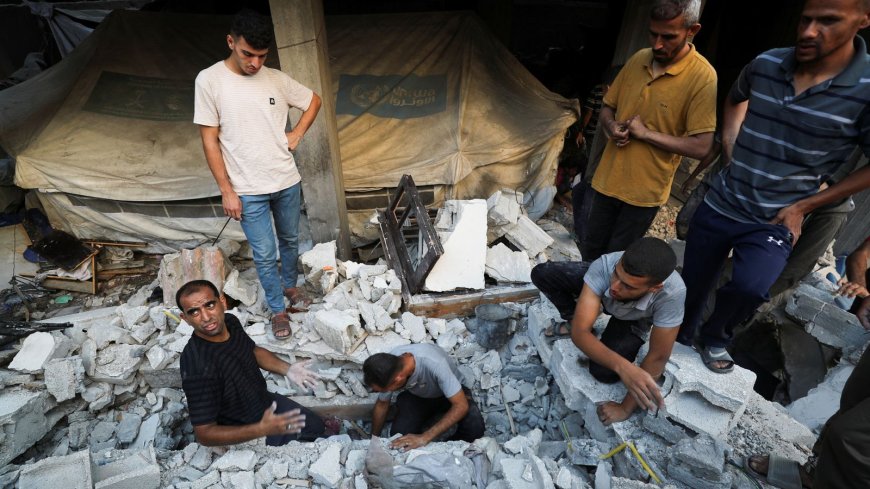Understanding the Potential Gaza Hostage and Ceasefire Deal and the Challenges Ahead
An Israeli delegation is set for talks with Hamas in Qatar regarding a possible hostage and ceasefire agreement in Gaza. The plan involves a 60-day ceasefire with a partial release of hostages in exchange for humanitarian aid. Challenges include issues with aid delivery, troop withdrawals, and differing proposals between the two sides.

An Israeli delegation is heading to Qatar for indirect talks with Hamas on a possible hostage and ceasefire deal in Gaza. The development comes ahead of a meeting between Israeli Prime Minister Benjamin Netanyahu and US President Donald Trump in Washington DC on Monday aimed at pushing forward peace efforts. The US leader has been increasing pressure on the Israeli government and Hamas to secure a permanent ceasefire and an end to the 21-month-long war in Gaza.
The plan is for an initial 60-day ceasefire that would include a partial release of hostages held by the militant group in exchange for more humanitarian supplies being allowed into Gaza. The proposed truce calls for talks on ending the war altogether.
The war in Gaza began after Hamas attacked Israel on 7 October 2023, killing 1,200 people and taking 250 others hostage. The proposal would reportedly see about half of the living hostages and around half of the dead hostages returned to Israel over 60 days, in five separate releases.
Hamas has sought guarantees that the initial truce would lead to a total end to the war and the withdrawal of Israeli troops from Gaza. Possible challenges ahead include concerns over humanitarian aid, passage through the Rafah crossing in southern Israel to Egypt, and clarity over a timetable for Israeli troop withdrawals.
According to a source, Hamas wants the agreement to say that talks on a permanent ceasefire will continue until an agreement is reached; that aid will fully resume through mechanisms backed by the United Nations and other international aid organisations; and that the IDF withdraws to positions it maintained before the collapse of the previous ceasefire in March.
Mr Netanyahu's office said in a statement that changes sought by Hamas to the ceasefire proposal were 'not acceptable to Israel'. However, his office said the delegation would still fly to Qatar to 'continue efforts to secure the return of our hostages based on the Qatari proposal that Israel agreed to'.
Another potential challenge is that Mr Netanyahu has repeatedly said Hamas must be disarmed, which is a demand the militant group has so far refused to discuss. Hamas has said it is willing to free all the hostages in exchange for a full withdrawal of Israeli troops and an end to the war in Gaza.
According to the source: Sky News.
What's Your Reaction?
 Like
0
Like
0
 Dislike
0
Dislike
0
 Love
0
Love
0
 Funny
0
Funny
0
 Angry
0
Angry
0
 Sad
0
Sad
0
 Wow
0
Wow
0

















































































































































































